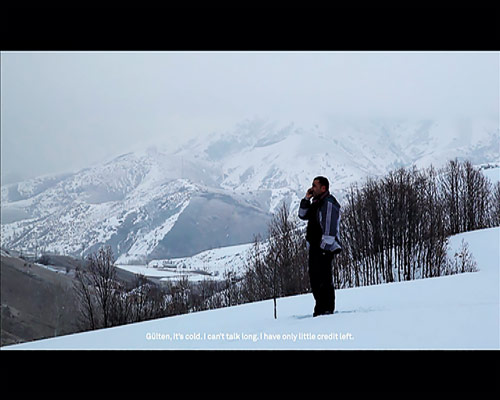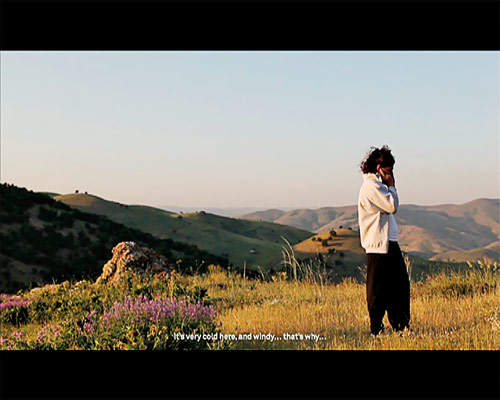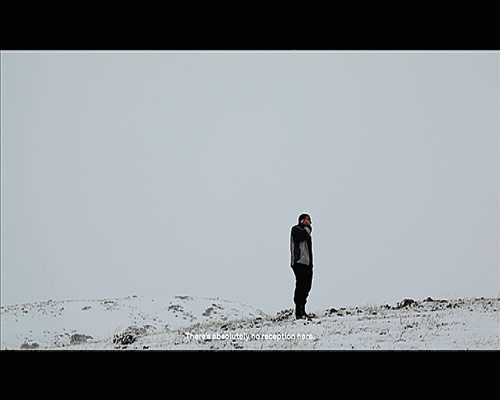2011
Nilbar Güreş
The city of Bingöl, in Turkish Kurdistan, where some of Güreş’s extended family live, is inhabited mainly by the Kurdish and Alevi minority – brutally discriminated against by the policies of the central state. One of the forms of discrimination is to deny people access to the most basic infrastructure.

After attempts to provide practical solutions to the city’s isolation were systemically turned down by the government, Güreş decided to record, via video and photographs, the inventive solutions that the inhabitants came up with. The resulting images, under the title Open Phone Booth, of which a three-channel video is included in the 31st Bienal, constitute a kind of social fresco. They give, for example, an account of the simple practice of going to the highest part of the village in order to get a better mobile phone signal, turning a contemporary technology into an instrument for a quasi-mystical exercise.

Güreş also registered situations that, at first sight, might seem ordinary and indeed marginal to the project’s central concerns. Yet these images add extra information and open up the work to other meanings. Through subtly ironic titles, Güreş manages for a simple lamppost to be viewed as a sculpture, a number of metal buckets to be seen as a still life, and a woman on a rocky outcrop as a performer. Similarly to what happens with other works by her, here the images straddle the line between comic and tragic, between realism and the absurd, between the ‘testimony’ of the document and the ‘semblance’ of the mise en scène. – SGN
